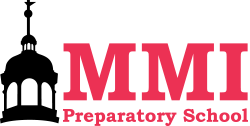By Madison Below
MMI Mid School Counselor
My mom jokes that I’ve been using a planner since kindergarten. And quite honestly, if the option existed (and if I actually got homework when I was five years old), I probably would have. I suppose it’s fitting that I stress the importance of using a planner in my Mid School Group Counseling classes on a daily basis. While I know the strategy of recording assignments, goals, and important events may not be practical for everyone, I feel it is a critical skill for pre-teens to learn and implement.
By recording homework, as opposed to the daunting task of attempting to commit it to memory, not only can parents check in on their son’s and daughter’s nightly assignments, but students get the satisfaction of crossing off assignments as they complete them. In my opinion, it is most effective for students to write down their homework as it is assigned in each class. Teachers generally write homework on the board in the same place every day, and students should get in the habit of immediately getting out their planner and recording that night’s assignments as soon as they enter the classroom. I also encourage Mid School students to record the materials necessary to complete the work for each subject, such as folders, binders, and notebooks. Therefore, when students go to their locker at the end of the school day, they can quickly refer to their planner to ensure that they are packing the necessary materials into their backpack to take home. Because I often see students wearing backpacks that appear to weigh twice as much as they do, I encourage them to leave those books in their locker that they do not plan to use that night.
Not only does using a planner assist students in completing nightly work, but it also helps students break larger assignments into manageable chunks. Have you heard the saying, “How do you eat an elephant? One bite at a time.”? As a vegetarian, I was never particularly fond of this phrase; however, it highlights the importance of focusing on small goals in order to accomplish bigger tasks. If a student knows, for instance, that they have a book report due in two weeks, with effective time management skills they can use their planner to determine when they will finish their novel, when they must submit a rough draft, and when the final copy is due. The goal is to prevent last-minute, late-night cram sessions that result in mediocre work, at best, and frazzled students (and, likely, frazzled parents).
Adopting the habit of writing in a planner on a daily basis can be the first step in Mid School students feeling more in control of their study habits. Greater control often leads to improved productivity, organization, and time management. A daily planner therefore helps students understand exactly what they have to do and when they have to do it. When a student sits down at the end of each school day with their planner, they have a detailed to-do list that outlines exactly what must be accomplished. There is little to no guessing what tasks must be done. This organization step alone can save several minutes in the homework preparation process. Because effectively using a planner takes practice, it is a skill that will develop over time. However, if used consistently, a planner is a small tool that can yield big results in productivity, time management, and organization.

